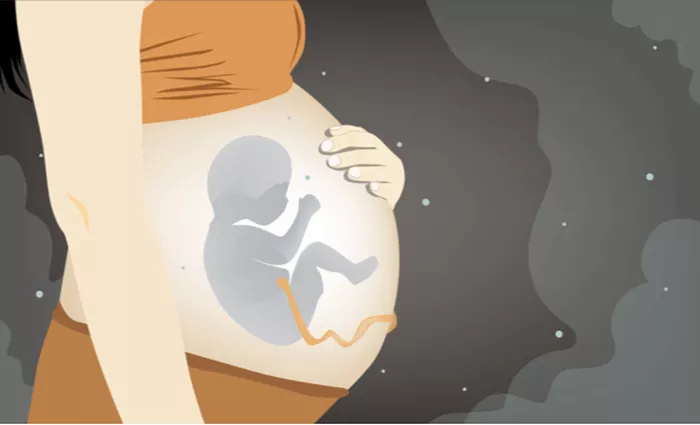A new study published in Scientific Reports reveals that air pollution does more than just irritate lungs—it may alter immune function in pregnant women, potentially affecting both maternal and fetal health. Researchers found that specific pollutants—particularly nitrogen dioxide (NO₂) and the oxidative potential (OP) of fine particulate matter (PM2.5)—can shift immune signaling pathways during pregnancy, even more so than PM2.5 mass concentration alone.
Study Overview
Researchers analyzed data from 270 pregnant women enrolled in the French SEPAGES cohort. Participants wore portable air monitors for a week in their second or third trimester, capturing real-time personal exposure to:
- NO₂
- PM2.5 (fine particles that can penetrate deep into the lungs)
- Oxidative potential (OP) of PM2.5, which measures the particles’ ability to cause cellular damage via oxidative stress
Blood samples were collected shortly after the monitoring period, and immune responses were tested at rest and after stimulation of T cells and dendritic cells—key players in immune function.
Key Findings
NO₂ exposure was associated with a decrease in pro-inflammatory TNF-α and an increase in anti-inflammatory IL-10 after immune stimulation. This suggests NO₂ may dampen immune activation in ways that could reduce inflammation—but also potentially impair immune defense.
PM2.5 mass (the actual amount of particles) did not show significant effects on immune markers, indicating that quantity may be less important than quality of pollutants.
Oxidative potential (OP) of PM2.5 had clearer associations:
- Higher OPAA (ascorbic acid assay) and OPDTT (dithiothreitol assay) values were linked to lower IL-8 (a key molecule in inflammatory responses).
- OPDTT was associated with increased IL-17A, a cytokine involved in autoimmune and inflammatory responses, suggesting a potential link between reactive particles and immune dysregulation.
These effects were most pronounced during immune cell activation, mimicking how the body would respond to infection or stress.
What It Means
The findings emphasize that not all air pollution is equal—particles with high chemical reactivity (oxidative potential) may be especially disruptive to the delicate immune balance during pregnancy. The immune shifts observed—such as suppressed IL-8 and increased IL-17A—could:
- Affect how pregnant women respond to infections
- Influence the developing immune system of the fetus
- Potentially contribute to pregnancy complications or long-term child health effects
Study Limitations
The study population was highly educated and had low smoking rates, which may limit its generalizability. Also, exposure and immune data were captured during a limited timeframe in mid- to late pregnancy.
Bottom Line
This research provides compelling evidence that chemical characteristics of air pollutants—especially their oxidative potential—are more impactful than mass alone in altering immune responses during pregnancy. Reducing urban air pollution’s oxidative potential, rather than just its concentration, could be key to protecting maternal and fetal health in vulnerable populations.
Related topics:


